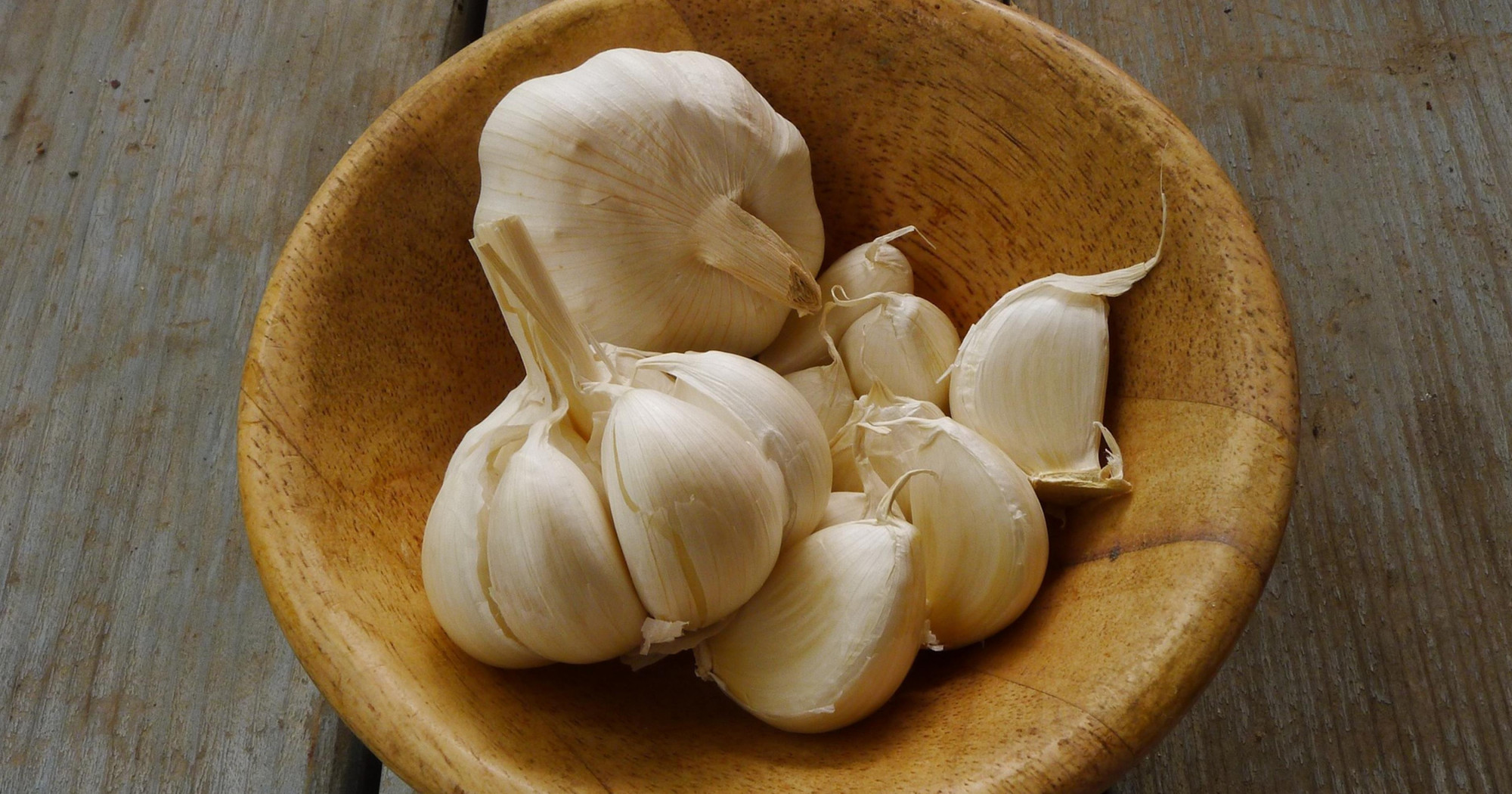Garlic

Garlic is a true powerhouse with many sulphur phytochemicals which are stronger than those in onions and offer a number of health benefits.
These phytochemicals act as antioxidants and help protect our bodies from free radicals, the nasty by-products of metabolism, including protecting your blood vessels. They are also anti-inflammatory and help to fight both infection and inflammation in the body.
As well as protecting the walls of our veins and arteries, garlic’s sulphur compounds can do even more. Some of the phytochemicals slightly reduce blood clotting, which helps lower the risk of thrombosis – a blood clot blocking blood supply to a vital organ. If you’re already taking blood-thinning medication though, ask your GP about garlic to stay on the safe side!
Garlic can also moderately reduce the levels of triglycerides (fats) and cholesterol in the blood and helps lower blood pressure by relaxing blood vessel walls. If you’re worried about your heart, garlic is your friend!
Despite all these benefits, garlic is probably best known for its antibacterial properties and rightly so. It helps fight infection but has also been shown to be able to prevent infection by some bacteria and yeast.
If you’re wondering whether garlic supplements are as powerful as fresh garlic, the answer might disappoint you. Processed garlic extracts don’t seem to have as powerful an effect as fresh garlic.
When it comes to minerals and garlic, it’s worth mentioning that garlic helps iron absorption, especially from grains. It may also improve your iron metabolism as some of its sulphur compounds increase production of a protein called ferroportin, which carries iron across cell membranes.
Garlic has been heralded as a good source of selenium because it can take up selenium from the soil well. Whilst garlic does contain selenium, it’s actually not a significant amount – one clove of garlic would provide only about one per cent of your daily selenium need.
Garlic has many health benefits and the side effects are few but some people might need to reduce their intake or cut it out entirely if they experience heartburn, nausea, vomiting or diarrhoea. It can cause flare-ups in people with lupus and if you’re scheduled for, or are recovering from, an operation, steer clear of garlic because it can prolong bleeding.
In most cultures, women eat garlic during pregnancy as a part of their normal diet and it’s considered safe. However, it’s not recommended to take garlic supplements during pregnancy as they can have a range of side-effects . These vary and as there isn’t sufficient research to be sure, it’s best to exercise caution. As with onions, never give garlic to dogs and cats because it’s toxic for them, even very small amounts.




